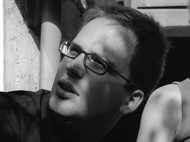| País | Bélgica |
|---|
| Ocupação | Compositor |
|---|
| Categorias | Contemporanea |
|---|
Education
Bram Van Camp (Antwerp °1980) created his first composition at the age of 9. He studied composition (Wim Henderickx' course) at the Royal Flemish Conservatory of Music in Antwerp an in Theo Loevendie's class at the Conservatory of Amsterdam. In 2003 this resulted in his certification as “Master of Music” for Composition, Music Analyses, Counterpoint and Fugue. The same year he also graduated with the certification for violin and the degree “Finality” in chamber music. One year later he became a "Bachelor of Music" cum laude for Composition at the Conservatory of Amsterdam.
Awards & Commissions
Being a composer, he was rewarded with several prizes: in 1999 he won the Aquarius Composition Contest with Rhapsody for violin and orchestra. In 2002 he was rewarded with the BAP prize (Belgian Artistic Promotion) issued by SABAM, for his Trio for clarinet, viola and piano (2000). His String Quartet (2004) was rewarded with the ISCM (International Society for Contemporary Music) Quality Label in 2006. In 2007 he was awarded with the Jeugd en Muziek Prijs voor Compositie (Youth & Music Award for Composition).
His compositions were commissioned by the "Festival of Flanders", "deSingel" (Antwerp) and Ars Musica, the Hermes Ensemble, the Nota Bene Ensemble, the Syrinx Ensemble and the Kandinsky String Quartet. In 2006 his wind quintet Hidden Facts was recorded by I Solisti del Vento for radio Klara. In 2007 his first symphony (Tetrahedron) was commissioned and premiered by the Royal Flanders Philharmonic (deFilharmonie). He was "Composer in Residence" for the Hermes Ensemble and wrote his Concerto for violin and ensemble, commissioned by them. His Capriccio for oboe solo is frequently performed by Piet Van Bockstal.
Style
Creating his music Bram Van Camp always strives for a style starting intuitively, where each note can be explained as being element of an own consequent system. He focuses on a musical and organic sounding result. This way, his system of composing is not the objective on itself, yet it is applied as a means to result in natural sounding essence: the real organic music. For him each composition is a quest to rebuild and refresh previous compositions. Philosophically speaking there is a similarity with György Ligeti. His stylistic roots originate from Béla Bartók, Igor Stravinski and Alban Berg.
Because of his craze for natural, organic musical freedom, his music is often influenced by jazz music. Some of his works conquered their place on jazz concerts.
Performing Musician
Bram Van Camp also studied violin at the Royal Flemish Conservatory of Music in Antwerp, taught by Vegard Nilsen and Kees Koelmans. In 2003 he graduated cum laude with the certification of "Master of Music" for violin and the degree "Finality" in chamber music.
Being a violinist, he attended many master classes and built a lot of experience in the orchestra and chamber music ensembles.
His Sonata for violin and piano (2003) was premiered by himself with Nikolaas Kende (piano). Strata for 2 violins he premiered with baroque violinist Charlotte Vande Ginste.
In October 2003 he appeared as a soloist by joining the "Ensemble for New Music" (Conservatory of Amsterdam) for the premiere of the violin concerto by Henrik Hellstenius (Norway) for the ISCM World Music Days in Ljubljana (Slovenia). The concert was recorded by the Slovenian Radio.
